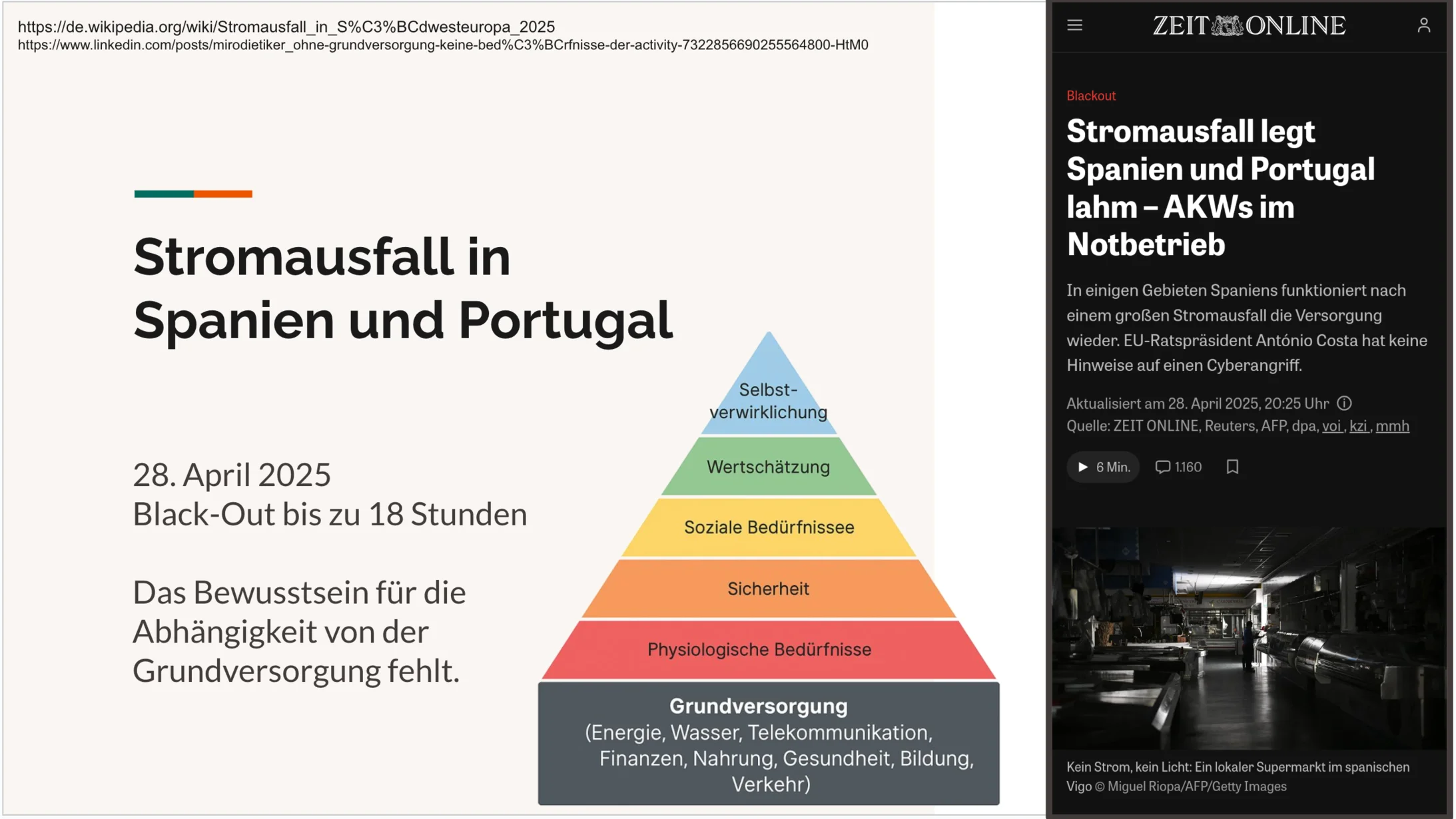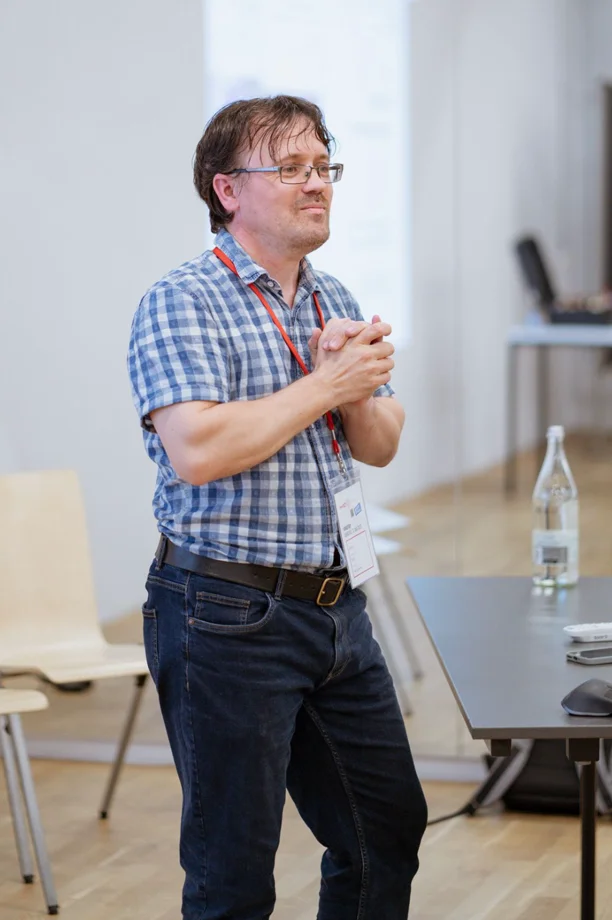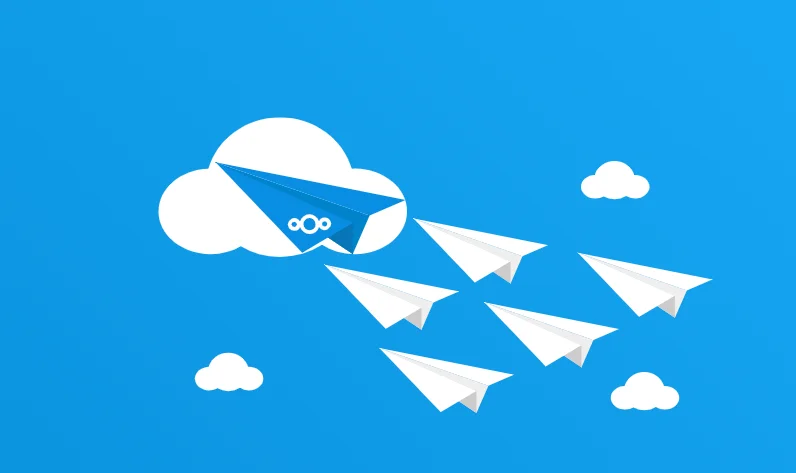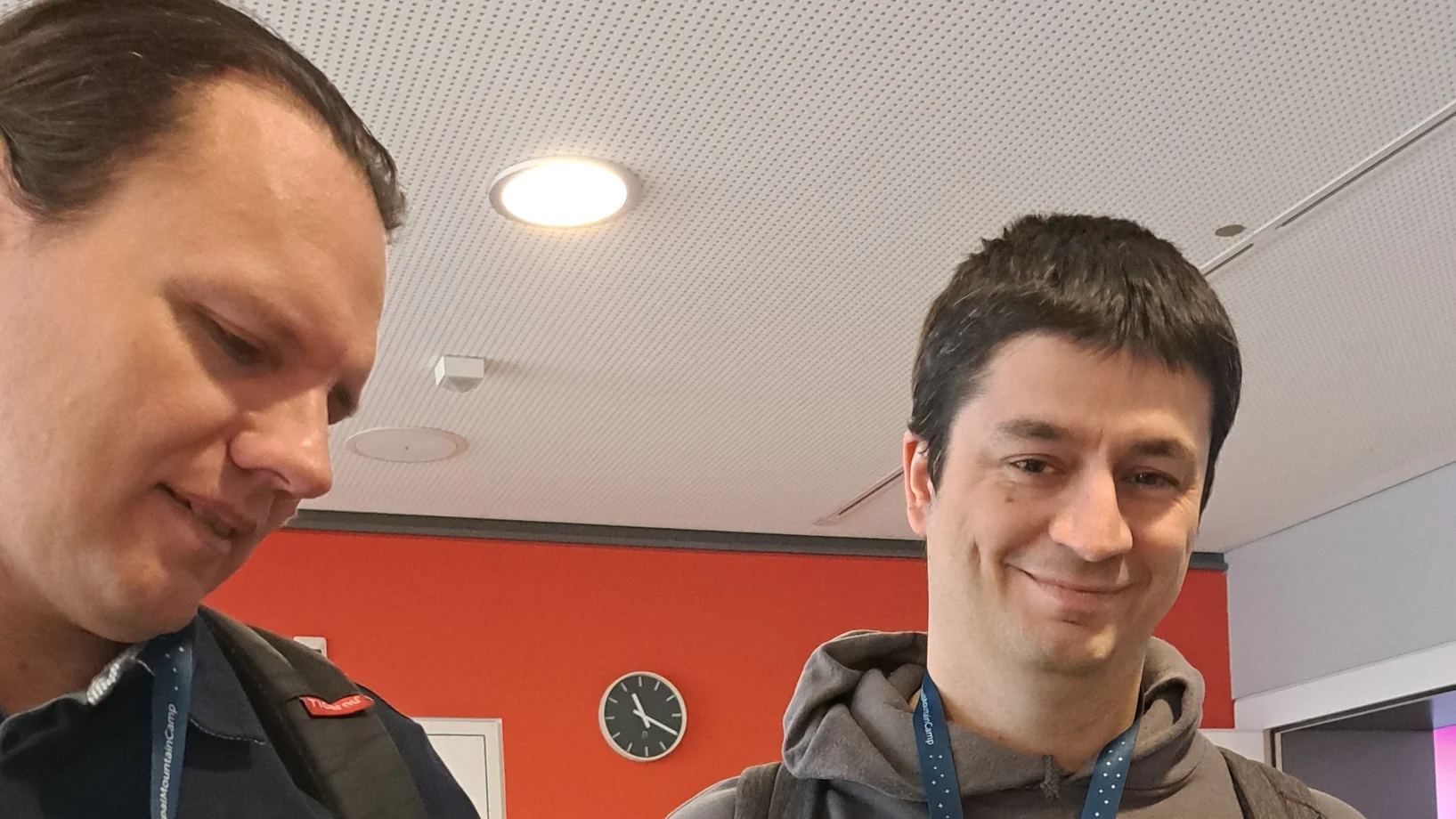Two weeks ago, we stuffed you with all the great benefits of digitization. And as it happens, when something is stuffed in, it either comes up again or spills out at the weakest point.
Where is the current weak point in the Swiss system and how can we hold our own against the big players without giving up our integrity?
We have learned that digitalization holds enormous potential, but every positive development also entails risks. If only because the transformation is progressing so rapidly that we often lose sight of sustainability. What is important and how can we make the future more pleasant for everyone? Where do we apply the leverage?
How reliable and stable are our digital systems?
Digital systems can fail and we were all able to follow this live on April 28, 2025, when the power went out in Spain and Portugal for 18 hours and all networks collapsed. Such an incident can have various causes, software errors, hardware defects or cyber attacks are probably the most common "culprits". As soon as critical infrastructures are affected, for example; the power grid, hospital IT, payment systems, it can lead to serious problems that affect society as a whole. We usually only realize how dependent we are on modern technology when a blackout occurs.
We are all dependent on the infrastructure, be it when paying at Migros or making a phone call to a loved one.

Who has your data? And what is done with it?
Data security and data protection are written in capital letters, often embedded in wonderful advertising texts and protection is guaranteed. But how much trust do we place in the digital world with our sensitive data? What is sensitive data? Anyone who has already experienced misuse of their data knows how many stressful consequences this can have. The simplest example is the misuse of credit card information. The consequences can be a financial loss and certainly a lot of administrative work, such as blocking the card, requesting a new one, etc.
The systems are becoming increasingly complex. Which makes perfect sense, because our needs in the digital world are becoming ever greater. Consumption is becoming easier and new technical complexities are being created to cope with this. As a result, systems are becoming increasingly opaque, both for the user and for those responsible. So who pays the taxes that theoretically accrue, when and why? Infrastructure? Who are we dependent on? What happens if a big player pulls the plug? Is there an emergency solution for this in Switzerland?
Who controls whom?
We should be aware of our dependence on providers (vendor lock-in) such as Google, Microsoft or AWS on a daily basis. After all, we all use these proprietary platforms on a daily basis. Once integrated, switching to another provider is often very expensive and technically very difficult due to the lack of open source behavior.
Despite all the convenience, where is our autonomy?
The more decisions we hand over or outsource to algorithms, the more we relinquish control. This often happens without us being aware of it in everyday life. This could be an AI-supported recommendation or a credit rating.
Social problems cannot be solved with technology and innovation alone. Sustainable social and cultural change is required in order to achieve the basic structures of independence. Global supply chains and geopolitical structures (e.g. cloud servers in the USA or China) complicate the legal situation, as well as the conditions for Switzerland to live inclusion and define digital sovereignty.
Sovereignty is a simple concept of peace!
From a state perspective, digital sovereignty means control and freedom of choice (no need to submit to other states) over their own digital infrastructures, data and technologies. Thus for each individual user of digital technologies. Who has data sovereignty?
It is imperative that we, as Switzerland, start building up our own digital expertise and technology. This will enable us to protect critical infrastructures from cyber attacks and energy leaks. To do this, we as Switzerland must become responsive and develop a national security strategy.

Sustainable steps to the future
MD Systems stands for technology that serves people and has been doing so for 25 years. We are committed to ensuring that the digital environment is understandable, accessible and trustworthy - for everyone.
We, MD Systems, are right in the middle of it and for 25 years we have been involved in various committees (CH Open, swissICT, Adis...) on open source topics. We try to make the multiverse of Open Source tangible, visible and understandable so that we as a society have the opportunity to move towards a sustainable future. We support the political and cultural level and do our best to sustainably anchor the importance and urgency of digital sovereignty and inclusion in our system.
Your company is in the process of switching to open source and your head is spinning from all the difficult decisions that need to be made? We can support you and your company right from the start of the project. Of course, we can also take over the entire transformation.
Stay on the ball and subscribe to our Newsletter.
Or connect with us via LinkedIn.


